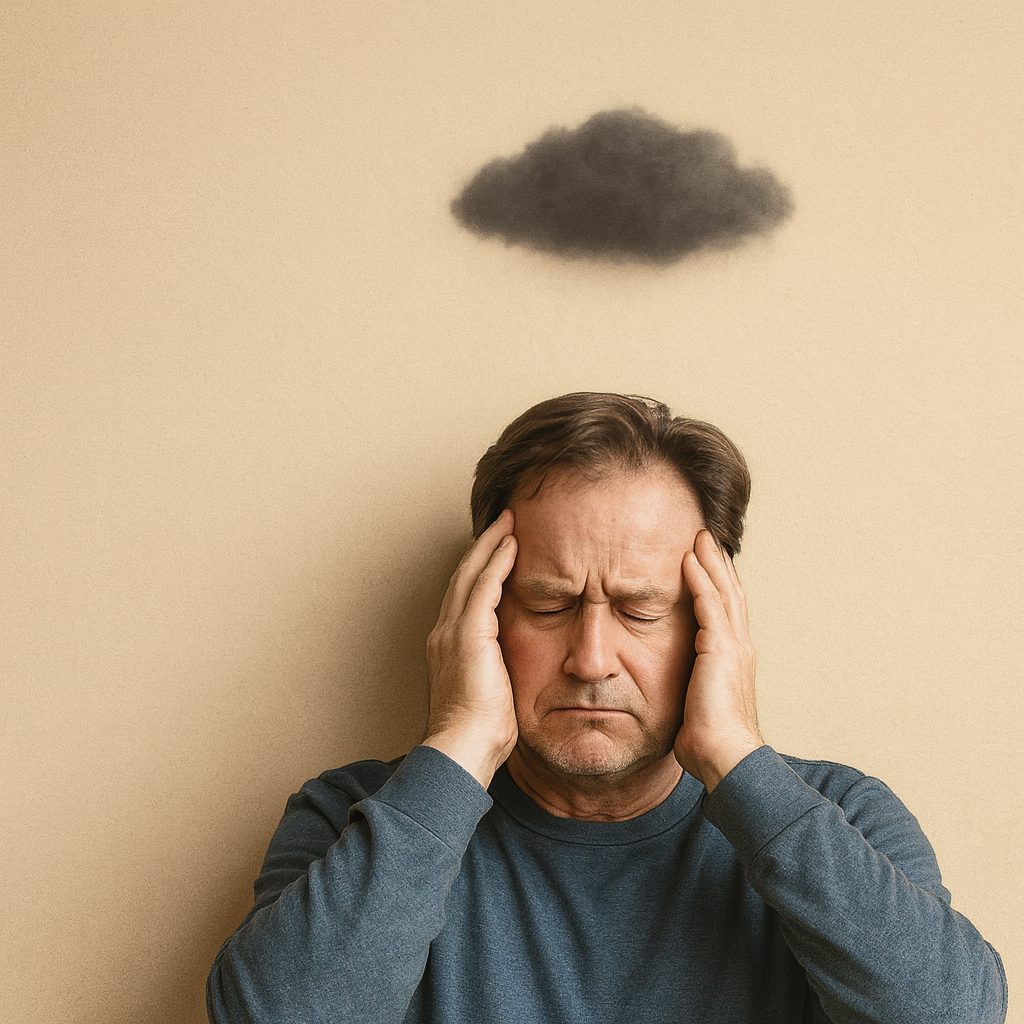
The Wednesday curse: Why do we feel the midweek blues?
Mike MunayShare
What if I told you Monday isn't the worst day of the week? The real villain arrives in disguise... and it's called Wednesday. Yes, that treacherous day that makes you wake up like a zombie and stare at the calendar in despair. Too far removed from last weekend, still light years from next, Wednesday is the real emotional trap of the week. Today we're going to break down why this day has the ability to leave us feeling drained and what science says about this midweek slump. Because Wednesday doesn't just drain you, it's scientifically proven to be the one that can take you down.
Wednesday's blues: hormonal, metabolic, and social causes
Did you think Wednesday fatigue was just laziness? Not at all. Behind that feeling of being burned out, there's a whole conspiracy between your biology, your mind, and the very social rhythms that the week imposes on us.
Biologically, our bodies operate on a very precise clock, thanks to the circadian rhythm. Every morning, cortisol, the stress hormone that keeps us alert, rises to get us going and wake up, and at night, it drops to allow us to rest. This cycle repeats every 24 hours like a metronome, but here's the problem: we don't have a seven-day internal rhythm to help us better manage our energy throughout the week. Our bodies don't know it's Wednesday, but our routines do. And the results are noticeable.
On Monday, we arrive with some extra fuel from the weekend, by Tuesday we're already running on reserve, and by Wednesday the tank is almost empty. If you also string together a couple of nights of poor sleep, a classic Monday and Tuesday routine with heavy workloads, your cortisol level stays high, your glucose metabolism gets out of whack, and you end up feeling stressed and exhausted at the same time.
The consequences are clear: energy ups and downs throughout the day, cravings for coffee and carbohydrates as if they were your lifeline, and that feeling of running on autopilot. And as if your body didn't have enough, society adds the icing on the cake. Wednesday is called Hump Day for a reason.
The five-day workweek puts us all on the same page, early birds and night owls alike, with rigid schedules and forced productivity. Wednesday is the halfway point of the marathon: we've already spent a good portion of our energy tackling meetings and tasks since Monday, but the weekend is still too far away to motivate us. Psychologically, it's a no-man's-land. In fact, a study by the London School of Economics with 22,000 people made it clear: Monday isn't so terrible because we're still reeling from the weekend effect, but Tuesday and Wednesday are the true emotional trough of the week. And beware, by then we're already burdened with the accumulated problems of the previous days, pending emails, and tasks that aren't progressing, increasing stress and keeping cortisol levels high even at night, making it difficult to relax and sleep well.
As if that weren't enough, in winter, Wednesdays become the perfect trap. The days are shorter, natural light is almost nonexistent, and we spend too many hours indoors between work and home. This means less serotonin and vitamin D, key neurotransmitters for mood. Research confirms: our well-being plummets on weekdays, especially during the colder months. So if on a Wednesday in January you feel like the world weighs twice as much, it's not your imagination: your body and your environment are conspiring to leave you feeling drained.
Why does Wednesday affect us so much and how can we cope better?
What's most interesting is that several studies suggest that the Wednesday blues aren't just an individual perception, but a fairly widespread pattern. A comprehensive study published in BMJ Mental Health found that, on average, people's mental well-being bottoms out midweek, especially at midnight and during the winter. Similarly, researchers at University College London observed that symptoms of depression and anxiety tend to be higher on Wednesdays and Thursdays than during the weekend. On the other hand, studies on daily happiness have shown that we are in a better mood on Fridays and Saturdays, while Mondays are not statistically worse than Tuesdays, Wednesdays, or Thursdays.
Now, the big question: what can we do to survive Wednesday without it becoming a nightmare?
Science has some answers. First, break the monotony. Introducing small pleasures or strategic breaks can recalibrate your mood. Scheduling something enjoyable on Wednesday afternoon, such as a special dinner, a trip to the movies, or simply a walk in the fresh air, gives you something to look forward to right in the middle of the week. Psychologists point out that mood improves when we anticipate positive experiences and also when we remember them. Second, take care of your sleep starting Monday. Don't try to stick to five hours a night for the first few days, because you'll pay dearly for it on Wednesday. Getting enough sleep from the start of the week helps maintain more stable energy levels and prevents impulsive cravings for junk food. Third, get moving. Although it's difficult, light or moderate exercise midweek can change your mood. Movement releases endorphins and helps reduce excess cortisol, combating accumulated stress. Even a short walk at midday can make a difference.
It's also key to eat well. Avoid binge eating fast food out of desperation, because sugar spikes followed by crashes will only leave you more fatigued. Opt for balanced meals that keep your glucose levels stable and fuel your brain. Finally, shift your focus. Instead of seeing Wednesday as a punishment, see it as the point where you've already passed the halfway point. Some companies have even experimented with four-day workweeks with Wednesdays off and report happier, more productive employees. If you can't take the day off, at least take a conscious break: five minutes of breathing, stretching, or reorganizing priorities can make a difference in your day.
References
Begdache, L., Sadeghzadeh, S., Pearlmutter, P., DeRose, G., & Krishnamurthy, P. (2022). Dietary factors, time of the week, physical fitness and saliva cortisol: Their modulatory effect on mental distress and mood. International Journal of Environmental Research and Public Health, 19 (12), 7001. https://doi.org/10.3390/ijerph19127001
Bu, F., Bone, J. K., & Fancourt, D. (2025). Will things feel better in the morning? A time-of-day analysis of mental health and well-being from nearly 1 million observations. BMJ Mental Health, 28 (1), e301418. https://doi.org/10.1136/bmjment-2024-301418
Chandola, T., Ling, W., & Rouxel, P. (2025). Are anxious Mondays associated with HPA‑axis dysregulation? A longitudinal study of older adults in England. Journal of Affective Disorders, 389 , 119611. https://doi.org/10.1016/j.jad.2025.119611
Stone, A. A., Schneider, S., & Harter, J. K. (2012). Day‑of‑week mood patterns in the United States: On the existence of “Blue Monday,” “Thank God it's Friday” and weekend effects. The Journal of Positive Psychology, 7 (4), 306–314.
